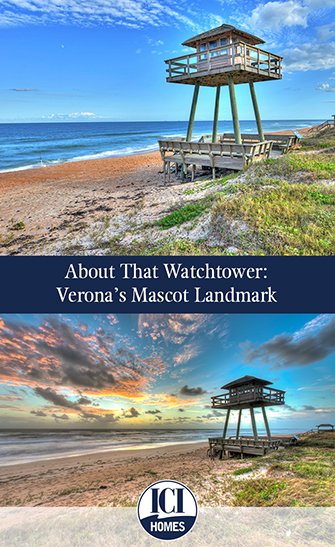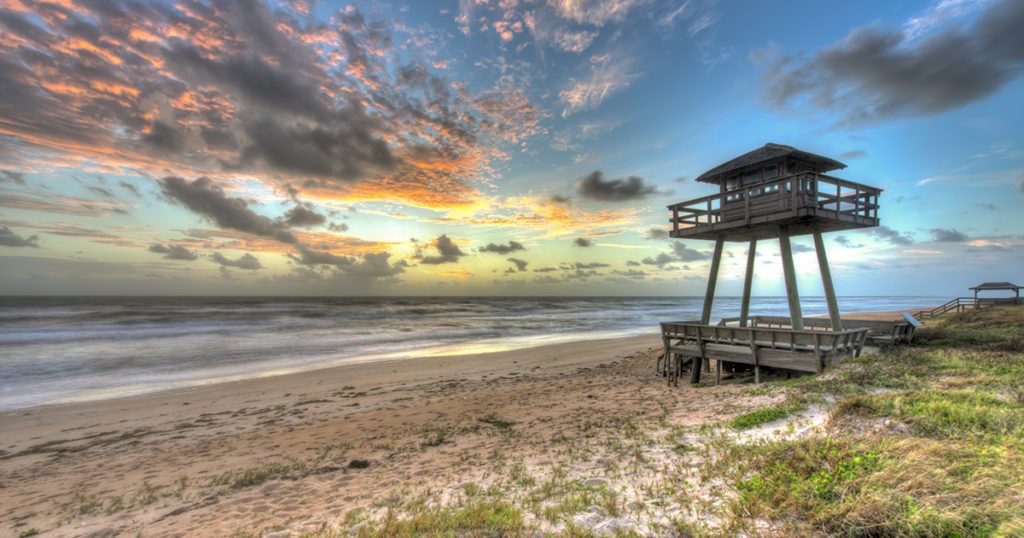Like most of the United States’ eastern seaboard, Florida’s Atlantic Coast has a long history that extends back multiple centuries. That certainly includes the greater Daytona Beach area. If you’re shopping for a new custom Florida home here, you’ll see history everywhere. Historical structures, places and people give this slice of east central Florida the sort of cultural richness that can’t be 
Erected as part of a civilian monitoring program, the wooden World War II-era watchtower has been standing since the 1940s. Its function was to help spot German ships and submarines. The watchtower still stands in its original location, atop a sand dune, facing out to sea.
Verona’s entry sits directly across from the watchtower and A1A, Florida’s Atlantic Coast highway. Read on for more interesting facts about our community’s mascot landmark.
Wartime vigilance
Once the United States entered World War II in late 1941, civilian programs sprang up to supplement government and military efforts. One such program were Victory Gardens. This program gained popularity due to the fact that so many food production resources were needed to feed troops overseas. Because of this, numerous Americans planted these “Victory Gardens” in their own backyards to bolster homeland food supplies.
The east coast watchtowers were a similar program, with hundreds of wooden watchtowers built along Atlantic coastal areas. This was a homegrown, first-alert mechanism against German naval activities.
As of this writing, Verona’s watchtower is one of only three from this program surviving in Florida. One is on the property of the historic House of Refuge at Gilberts Bar in Stuart, Florida. The other is in what was the Sebastian Beach Inn in Melbourne, Florida.
About Verona’s watchtower
The historic structure in Ormond by the Sea stands approximately 30 feet tall. Four wooden posts anchor the structure to the ground. The watchtower gave those on duty a 360-degree view of land and sea.
Per some historical accounts, the watchtowers were equipped with binoculars and a telephone to alert authorities of any suspicious activity. Some published accounts also credit the watchers who staffed the Ormond by the Sea tower as being part of a U.S. Coast Guard auxiliary group.
In 2004, the Ormond watchtower was restored. The southeast support pillar, rotted wood, and other materials that could not be saved were replaced. Otherwise, the pieces remain original. After several months’ restoration work, the tower was then remounted and reassembled.
Today, you’ll find Verona’s central address named in honor of the structure — 5 Watchtower Drive. Moreover, Watchtower Drive is the signature thoroughfare in this unique, beach-y community!
Ready for your Verona lifestyle? Talk to ICI Homes here.

